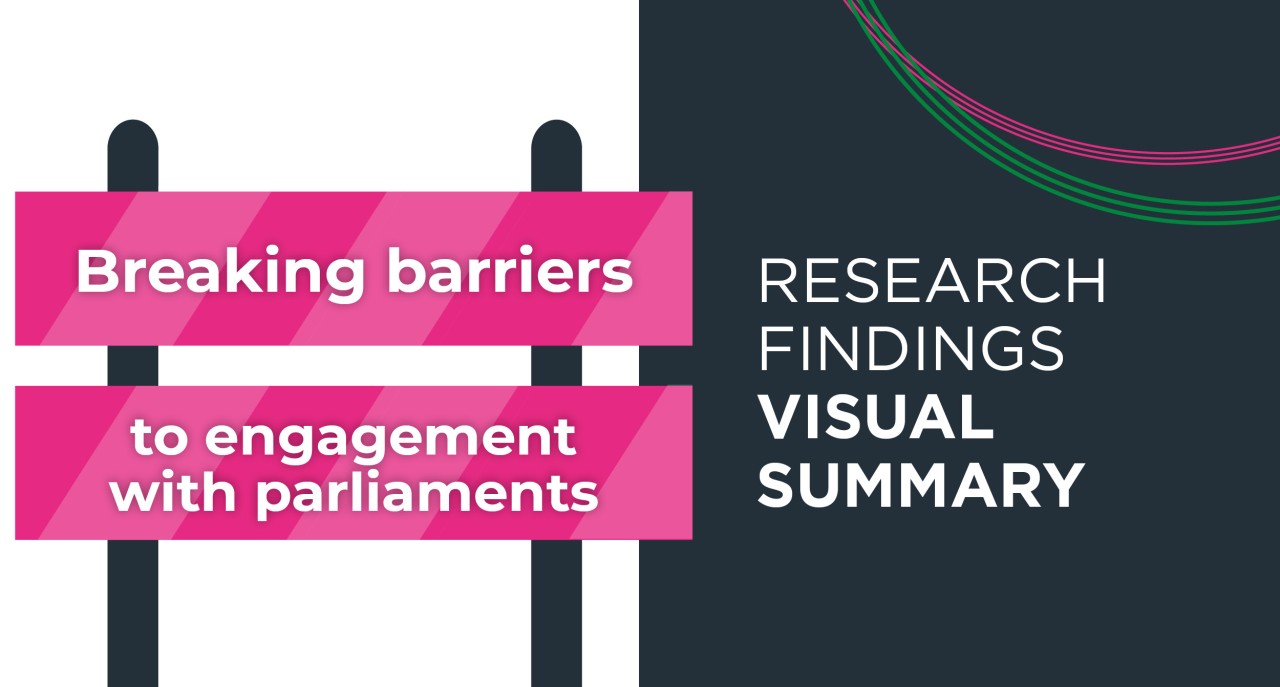Research findings on breaking barriers to engagement with parliaments
By Cristina Leston-Bandeira,
Professor of Politics at University of Leeds
Research overview
Millions of people regularly engage with petitions, using them to make their voices heard in parliaments. To facilitate this, many parliaments have developed new processes to make petitions more effective. However, these tend to be used by a limited group of people.
In our latest research project, we conclude that to expand the use of petitioning beyond the usual suspects and to enhance the petitioning experience, parliamentary processes need to adopt more citizen-focused communications, consider procedures in place from a citizen’s perspective and be more proactive in disseminating the value of petitioning.
This research is unique because it:
-
adopts an in-depth qualitative approach
-
focuses on seldom-heard groups
-
works with community organisations to study seldom-heard groups, which is innovative in politics studies
-
is co-produced with parliamentary officials
-
approaches petitioning from both sides: the citizen’s perspective and the institution’s
Key research message
Through 6 focus groups and 18 interviews, we identified key aspects that can enhance political engagement and petitioning:
-
clear communications and accessible visuals
-
collaboration with other citizen centred services (e.g. education, engagement)
-
working with community organisations
In line with our research recommendations, we captured our findings in a short and engaging visual summary.
Research findings in a visual summary
What is the aim of this visual summary?
This visual summary captures the key findings and recommendations from our research. We hope it gives a good insight into how people perceive politics, how they experience petitioning, and what parliaments can do to make their petitioning processes and practices more suitable to wider groups of people, beyond the usual suspects.
What is the audience of this visual summary?
This visual summary is aimed at:
-
parliamentary staff in general, in parliaments around the world
-
staff beyond petitions committees
-
professionals interested in the topic of political engagement, petitioning and seldom-heard groups, such as academics, third sector professionals, civil servants
How will this visual summary help readers?
The visual summary will help readers understand:
-
barriers to political engagement
-
the gap between officials’ perceptions on people’s awareness of petitioning and perceptions of politics, and the reality
-
the things they can do to make their processes more citizen-focused
What action should readers take after reading this visual summary?
After reading this visual summary, we encourage officials to review their processes, practices and materials, to reach wider publics. Check if your website and materials are easy to understand for everyday citizens, for example, do they include any images, videos or infographics.
For more information about the research, reach out in a message on LinkedIn or email c.leston-bandeira@leeds.ac.uk
How can I download the visual summary?
The visual summary is accessible for free. You can download it by filling in this short form.
This research was conducted by Professor Cristina Leston-Bandeira and Dr Blagovesta Tacheva, PhD at the University of Leeds in partnership with the Petitions Committees of Senedd Cymru and the UK House of Commons, funded by Research England. The views expressed are those of the authors and not necessarily those from the parliaments.
The visual summary was created in collaboration with Research Retold team.
Original publication: https://www.linkedin.com/pulse/research-findings-breaking-barriers-engagement-leston-bandeira/









